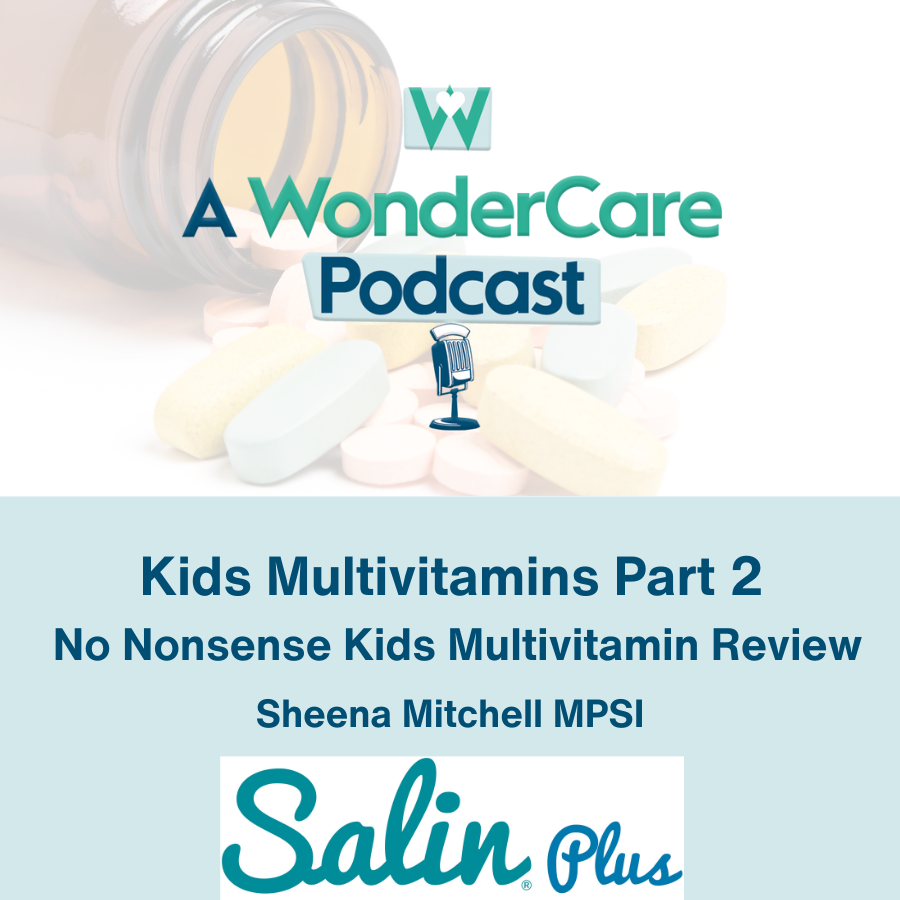Episode Transcript
[00:00:05] Hello and welcome to a Wonder Care podcast. My name is Sheena Mitchell. I am a pharmacist, mum of three and here to guide you through all of your family healthcare needs. This week I wanted to discuss the RSV vaccination program that has been recommended by nine back and whether or not that is likely to be in place for winter season 2024 into 2025. On the 20 February this year, the Irish Times published an article which basically alluded to the fact that these vaccinations would be in place for next winter. Obviously I thought they knew something I didn't know, so I shared it on my social media and everyone was jubilant to say the least. This is a very sought after prevention to a very scary and disruptive illness. So I did a little bit of digging and I wanted to explain what I think is likely to happen and what I think should happen.
[00:01:12] First of all, I suppose we need to consider how a medicine goes from being approved by the European Medicines Agency to actually becoming available in Ireland. Well, for vaccines or immunisation treatments, new drugs first have to be appraised by the NCPE. These are the National Centre for Economics. Don't worry, I'll speed through this bit. The rapid review compares the effectiveness of medicines using the manufacturer's evidence, and they also consider the cost effectiveness. If a drug is really expensive or it's likely to have a significant burden on the budget, then it has to go through what's called a full health technology assessments. This is otherwise known as a HTA. A HTA is meant to take about 90 days, but in reality it can actually take about two years. I contacted Hicwa, who are undertaking a rapid HTA on the immunization of infants for RSV. After the chief medical officer, Brita Smith, made a specific request. They told me that they expect this to be completed by quarter three, 2024. So that's sometime around August or September this year. The fall HTA on immunization in both adults and children won't actually commence until later in the year with no completion date available. So that could be up to two years. So what does that all actually mean? Well, in reality, it doesn't look possible to me that we will have immunization in place for infants this winter. A stock of vaccinations or preventative treatments would have to be ordered soon to ensure that we actually have a supply for when we need it, which would be September, the start of the RSV season. Instead, it seems likely to me that we'll end up with a report from Hicwa telling us that it's a good idea but no supplies to actually implement it, which is a little frustrating in countries where vaccinations were already rolled out last season. For example, in America where nursivimab, otherwise known as bayforges, was recommended by the CDC for children under eight months of age who are entering their first rsv season and any toddlers that were at risk up to the age of two. They said that the vaccine itself and the parents'demand for it was a huge success, but one which could not be harnessed due to limited supply. I don't want us to make the same mistake. It is very clear to me that if we do not make a prompt decision in the next couple of months about autumn winter 2024, then we won't actually have supplies to respond to the needs of parents and it will lead to an awful lot of frustration.
[00:04:01] I'm just going to pause for a second to give a big shout out to my supporters salon plus salon plus is the world's 1st 100% natural dry salt therapy device. It's clinically proven to relieve a wide range of allergens and respiratory conditions. The salt therapy method has been trusted for generations and is now hugely popular worldwide. More and more people are recognizing the superb results achieved from a natural and noninvasive method. This device helps you to breathe easier and sleep better.
[00:04:33] As it stands, we know that NIAC recommended vaccination against RSV for infants and people aged over 65 years of age. We know that the CMO professor Brita Smith asked Hiqua for a rapid HTA of infants immunization, and we know that the irish times have reported that vaccination is likely to be in place for next winter. But nobody actually seems to be connecting the dots. If we want to ensure vaccinations are actually available, ultimately we need to speed things up. Otherwise we're not going to have the treatments available to us that we're telling parents that they need for their children. Apart from just misleading parents, we are also playing a dangerous game with our health service, which affects all patients with any and every illness. Let me explain that in 2023 there were 7823 cases of RSB reported. 5021 of these were in kids age zero to four, and 1414 of them were in adults over 65. The rest of the cases fell anywhere in between those ages. We know that for the season 23 24 to date, there's been 3219 hospitalizations as a result of RSV.
[00:05:55] We also know that the average stay in hospital for a patient with RSV is around three days. So from that we know that there were roughly 9657 hospital nights in the 2023 to 2024 RSV season from the end of September up until the end of February. All of this in a health service where hospitals are canceling all outpatients operations due to overcrowding. In 2021, the price of an acute hospital inpatient bed per night was 878 euro. And I seriously doubt that price has dropped since then. That means that a preventable disease cost the state almost 8.5 million directly. The true cost of delaying treatment for other patients with other clinical needs would be frightening. And it would be frightening because how do you actually put a cost on death?
[00:06:56] So why do I feel so strongly about making a prompt decision on these immunization treatments? Well, Galicia in Spain were the first place to share real world data from its implementation of Bafortus, which is the brand name for nursivimab. Nursivimab is the monoclonal antibody treatment, so it is given to babies, and it's not a vaccine as such, but it offers you immunity for a five month period after you've received it anyway. In Galicia, they launched their program on September 25, and it will end at the end of March. They rolled it out in the very same way that I strongly hope we do here. They used a three category approach, so, first of all, they administered it to all infants in hospital after birth, but before they were discharged from hospital. And this was to all babies who were born during RSV season. They also ran a catch up program for any infants who were zero to six months at the start of RSV season. Finally, they offered it to all children from six months to two years who fell in a high risk category. This approach ensured strong protection for all infants, and the uptake on the treatment was phenomenal. The success of this program was down to its strong administrative approach, allowing flexible and accessible vaccination for parents in the catch up and high risk groups here in Ireland. It could be even easier, because we already know that babies receive their childhood immunisations at two, four and six months of age. That means that we have access to that patient group within the six month time frame. In effect, that means there would be no extra burden on the administration of the vaccine on healthcare teams or parents. Parents are bringing their children to those appointments anyway.
[00:08:54] And for babies who are born during the season, it could just be given before discharge, just like the BCG traditionally was. Quite frankly, the logistics are easy and cheap to implement, so that can't be blamed for a slow introduction of treatment I absolutely appreciate the need to assess benefit and cost, but with the state of our health service currently, with RSV taking up so many beds in our hospitals, should we not just be choosing to do it this year? While we're waiting for the results of all these big health technology assessments, we know the efficacy of Bayforges. The melody study, which was a phase three study, showed it to be 76.4% effective at reducing the incidence of RSV in babies. It also decreased the rate of hospitalization due to RSV by 76.8%. In addition to that, it resulted in 79.5% of a reduction in medically attended rsV. So think your GP appointments and your hospital day cases. And it wasn't just rsv that it improved. The administration of Nursevmab actually reduced lower respiratory tract infections from all causes by 41.9% and overall antibiotic use for all cause lower respiratory tract infections by 23.6%. The harmony trial, which was also phrase three and took place in a larger sample of patients in France, Germany and the UK, showed 83.2% efficacy in the reduction of hospitalizations from RSV and a 58% reduction in all cause lower respiratory tract infection throughout the RSV season. In effect, children were healthier and when you consider our figures for hospitalizations from RSV and the cost that they have on the state, I'm just not sure that we're in a position of choice to wait for the outcome of the rapid HTA that Hickwort are doing. Our government are in essence not going to be able to provide us with the treatment which is very likely to be recommended this autumn because they haven't foreseen the logistics. And quite frankly, the logistics are that they just need to make a provisional decision. It's one year. They can always change their approach next year. But why are we not choosing to protect this winter's babies? Parents want this. Patients need this. The health service will fall and crumble again next winter if we do not have this. It's not the answer to all of our problems, but it is certainly a proactive approach which would help to minimize the strain of lower respiratory tract infections. At a time of year where our healthcare workforce are unable to cope with the demand for their services, I ask you to please reach out to your local TDS politicians and policymakers and ask them to consider joining the dots. There is no point making a recommendation to us for this winter. In autumn, when it's too late to actually implement it, we have an opportunity to act now or to accept another horrendous winter of hospital care. Maybe the irish times know something I don't, but I really don't think they do. Hecwer replied to me and told me that the rapid HTA as requested by the chief medical officer will not be ready until quarter three, by which time we will struggle to get the stock of these medicines to treat our babies. I am frustrated by the lack of joined up thinking that this has highlighted and I'm sorry for ranting about it, but honestly I can just see the frustration and upset that this is going to cause next winter. Everyone's going to want the treatments and there isn't going to be any here anyway I suppose. Look, I just didn't want people getting false hope about a scenario that currently does not look very optimistic. I hope to bring you more cheery news next week. And yeah, more information on more family health topics. Follow and subscribe to keep up to date. Thank you very much.


